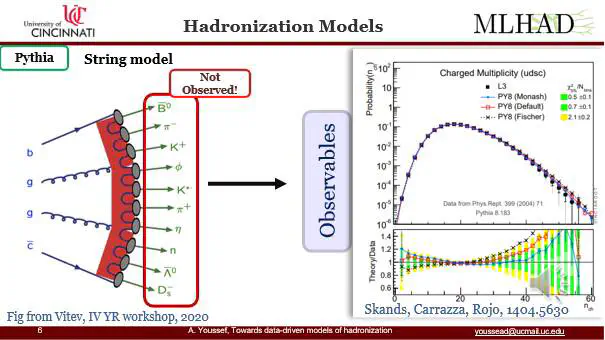
Abstract
This paper introduces two novel machine learning based approaches to improve hadron-level simulation by integrating experimental observables; Microscopic Alterations Generated from IR Collections (MAGIC), which fine-tunes normalizing flows, pre-trained on simulated data from PYTHIA, on experimental observables, and the Collective Reweighting Method (CRM), which reweights existing fragmentation functions to match experimental observables with a two-step procedure that makes use of a observable-level classifier and hadron-level particle cloud-based regressor. Both methods show a promising direction towards data-driven models for hadronization.
Type
Publication
NeurIPS 2023, ML4PS